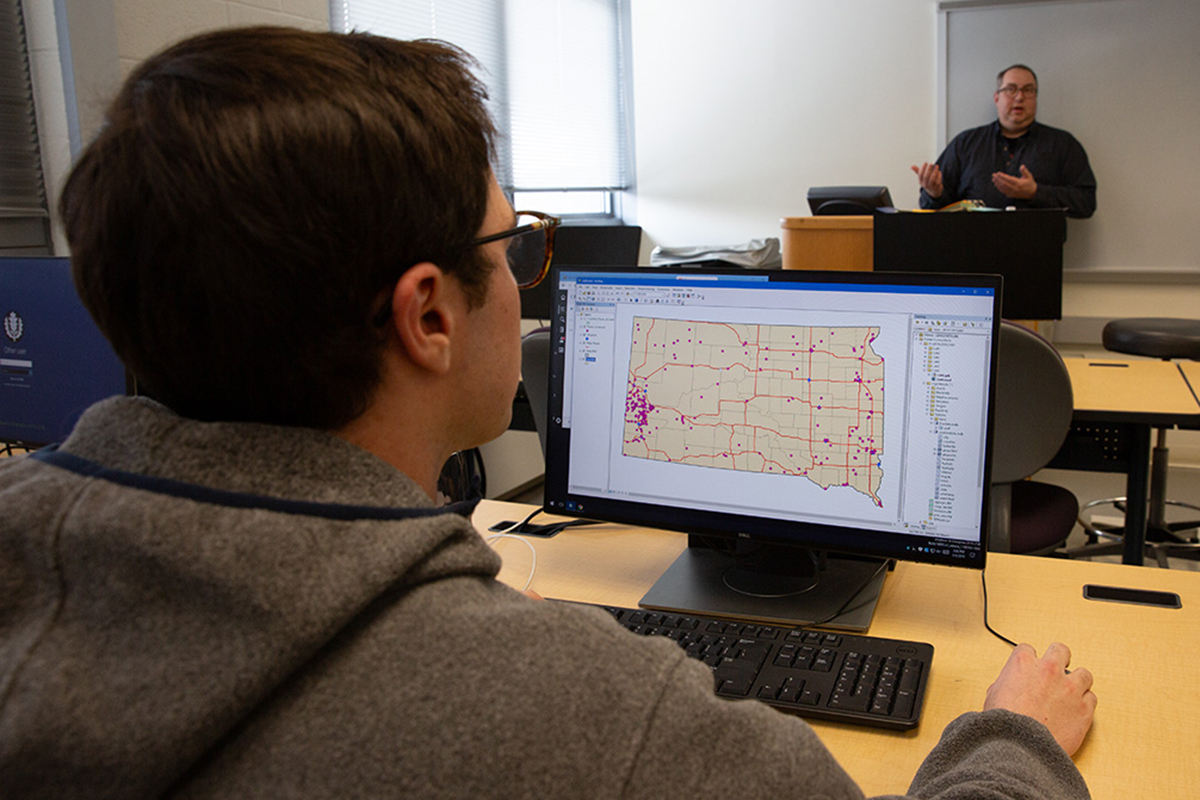Geographic Information Science Major
Geographic information science majors pair coursework with hands-on experiences to develop capability in spatial thinking.

About the Major
Students can pursue a Bachelor of Arts (BA) or a Bachelor of Science (BS) in Geographic Information Science (GIS). Courses allow students to gather in-depth knowledge of geospatial technology and explore a range of modern tools contributing to the geographic mapping and analysis of the Earth and human societies. These include geographic information systems, remote sensing, spatial statistics, and more.
Our students develop a foundation that prepares them to pursue a variety of careers and graduate study.
Requirements
The GIS major requires at least 26 credits of 2000-level or higher courses in the Department of Geography, Sustainability, Community, and Urban Studies. Students complete basic core courses before beginning advanced courses.
Recommended preparation for the major:
- GEOG 1010 New Digital Worlds of Geographic Information Science.
- GEOG 1302 GIS Modeling of Environmental Change.
Bachelor of Arts
The BA degree does not require students to take biology, chemistry, physics, or calculus, and focuses on classes related to spatial analysis of social issues.
Bachelor of Science
The BS degree requires students to take biology, chemistry, physics, and calculus and is intended to prepare students for careers in natural science or engineering with geospatial technology.
Plan of Study
Resources for Undergraduate Students
Advising
Need help navigating degree options, selecting courses, or exploring career paths? Our team of staff and faculty advisors is here to help.
Scholarships
Students can apply for scholarships that consider merit and financial need through the Department and the College of Liberal Arts and Sciences.
Student Opportunities
Prepare for life after graduation by getting involved in internships, research, and other experiences outside of the classroom.
Double Majors, Additional Degrees, and Minors
Students can enrich their college experience by adding a double major, dual degree, and/or a minor.
A double major allows students to complete majors in two different departments or plans in the College of Liberal Arts and Sciences (CLAS). An additional degree allows students to complete majors in two different schools or colleges.
Students interested in adding geographic information science as a double major, an additional degree, or a minor can meet with an advisor.
Students interested in a major or minor outside of the Department of Geography, Sustainability, Community, and Urban Studies should meet with that department to get a full understanding of the requirements and timeline for graduation.
Declare Your Major
Students can declare a major or change their major on the Online Program Change website.
To do so, log in, select New Major Change, and follow the prompts. If you have a double major or minor, please add that in the notes section.